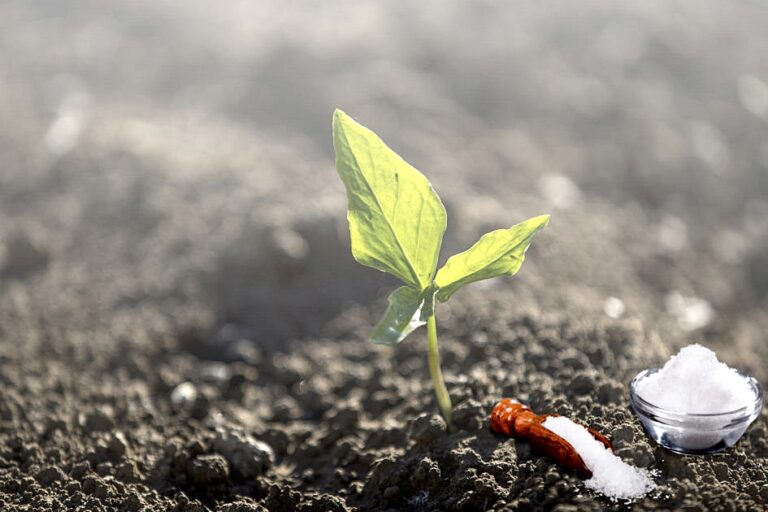In the agricultural world, the constant search for solutions that improve the quality of crops and the efficiency of production processes is fundamental. Among the products that have gained popularity in recent years is magnesium chloride, a substance that, although known in other sectors, has begun to stand out for its benefits in agriculture.
This mineral is increasingly being used for its nutritional properties and its effects on soil health, improved crop yields and disease reduction.
What is magnesium chloride?
Magnesium chloride is a compound consisting of magnesium and chlorine. In nature, it is found in saline deposits, seawater and some groundwater. Unlike other mineral fertilizers, magnesium chloride is not only a source of magnesium, but also contributes to the ionic balance of the soil, making it a versatile product.
Magnesium, as an essential element for plants, plays a crucial role in photosynthesis, as it is part of chlorophyll, the green pigment that allows plants to capture sunlight. Through this process, plants generate their own food, and an adequate level of magnesium can increase their efficiency in this regard.
Improving soil health: an effective and natural fertilizer
One of the main applications of magnesium chloride in agriculture is as a fertilizer. When applied to groundmagnesium improves soil structure, promoting greater aeration and facilitating drainage. This is crucial, as its action can benefit compacted soils or soils with low water retention capacity.
In addition, magnesium chloride not only provides magnesium, but also chlorine which, although in large quantities can be toxic to some plants, in controlled doses helps chlorophyll formation and promotes plant growth. Chlorine also contributes to the osmotic balance of plant cells, allowing better absorption of water and nutrients.
Proper use of this fertilizer can restore depleted soils and increase crop productivity in areas with nutritional deficiencies, especially in regions where soils are naturally low in magnesium.
Impact on crop production: yield and quality increase
Magnesium is essential for plant development because it is involved in the activation of various enzymes that facilitate essential metabolic processes, such as protein synthesis and carbohydrate formation. Therefore, an adequate amount of magnesium improves the ability of plants to absorb other nutrients, resulting in faster and healthier growth.
Several studies have shown that magnesium chloride can significantly increase crop yields. For example, in rice, corn, wheat and vegetable crops, the application of this fertilizer can result in higher fruit yields and improved fruit quality, with a noticeable increase in nutrient content. This not only benefits farmers from an economic point of view, but also improves food quality for consumers.
Natural disease and pest control
Another benefit that is gaining prominence is the use of magnesium chloride as a means of pest and disease control. Although not a pesticide in the strict sense, some research suggests that magnesium chloride may have fungicidal and bactericidal properties. This is due to magnesium's ability to interfere with the biological processes of certain pathogens.
For example, in vegetable and fruit crops, magnesium chloride has been used to reduce the incidence of fungi such as the Fusarium o Phytophthorawhich affect the root and foliage of plants. In addition, some studies also suggest that magnesium chloride can act as a barrier that hinders the penetration of harmful insects, improving the overall resistance of plants against external attacks.
An ally for sustainable agriculture
Magnesium chloride presents itself as an attractive option for improving agriculture in a sustainable manner. Not only is it an efficient source of essential nutrients, but it also has the potential to improve soil structure, increase crop yields and reduce disease incidence.
Ultimately, the proper and responsible use of magnesium chloride can make a difference in agricultural production, benefiting both farmers and consumers.



